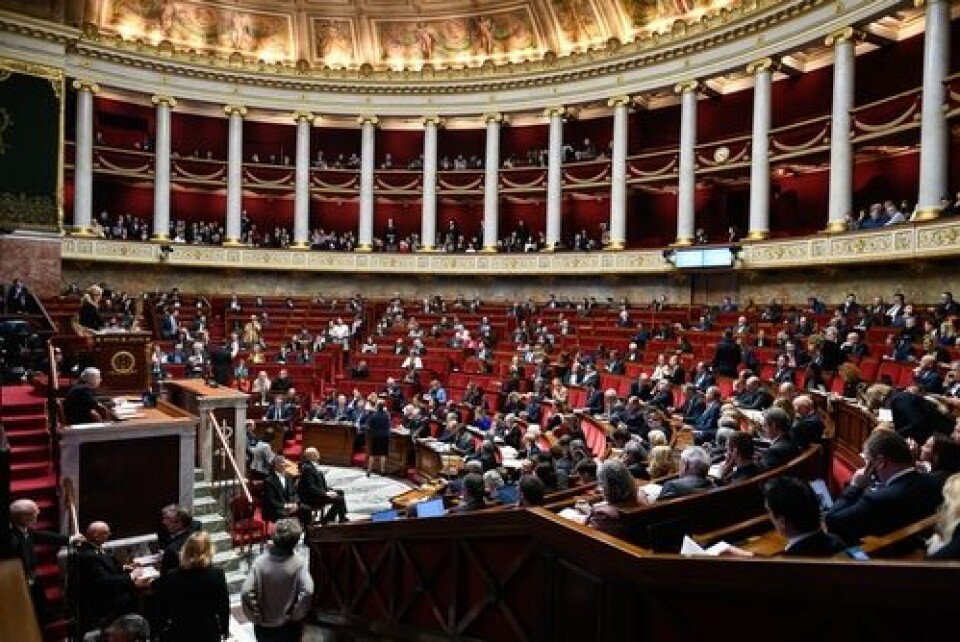-
How many Americans live in Paris - and where else are they choosing in France?
Over a quarter of all US nationals in France live in the capital city
-
Price rises for Netflix in France
The Standard (with ads) and Premium packages are increasing by €24 a year
-
Leclerc supermarkets to sell car fuel at cost price for Easter
The initiative will apply to diesel, petrol, and LPG
What is article 49.3 and could it help pass France’s pension reforms?
The controversial article is back in the news ahead of an expected vote in parliament on the government’s pension reform plans

You may have seen article 49.3 mentioned frequently in French media recently as the government battles to push through its highly-contested pension reform plans.
Here we explain what it is and how it could be used to get the reforms through parliament.
What is article 49.3?
Article 49.3 is a political mechanism that can be employed to push legal changes through the Assemblée Nationale or the Senate without requiring a majority vote from the chamber.
The prime minister can use it following discussions with their cabinet (cabinet des ministres). It applies to financial, social, or security issues.
The article was in the news most recently in October 2022, as Prime Minister Elisabeth Borne sought to push through the projet de loi de finances pour 2023.
Read more: Explainer: what is France’s article 49.3 and why is it in the news?
The use of the article is often described as the ‘nuclear option’. This is because there is the possibility that it could cause the collapse of the government.
This can happen through a motion de censure (vote of no confidence) which must be signed by 58 MPs – ten per cent of members – within 24 hours. If the government fails to get an absolute majority – 289 votes – in any ‘vote of confidence’ then the prime minister and government must resign.
If there is no ‘vote of confidence’ around the bill that the government is trying to push through using article 49.3, then the text is directly adopted.
Due to constitutional reform in 2008, the use of article 49.3 has become more limited. The government was previously able to use it as often as it wished, but now that has been drastically limited to budgetary texts and one other text per session.
Depending on what side of the political-power divide you are on, article 49.3 can be seen as a useful aid to push through legislation or a tool that muzzles democratic debate.
What is article 43.9’s link with the current pension reform debate?
The article is back in the news as the final vote on the controversial pension reforms approaches. The final vote is set to take place on Thursday (March 16).
The proposed pension reform has been highly unpopular, with repeated days of national strikes and unions from a wide range of sectors calling for ongoing action in a bid to force the government to abandon its reforms.
Read more: Traffic, fuel, rubbish: France braces for yet another pension strike
Read more: What’s happening in France this week?
Today (March 15), the cross-parliamentary commission (commission mixte paritaire, CMP, made up of seven MPs and seven senators) is debating the reform and will present its conclusions later.
It will first present to the Senate, and then the Assemblée Nationale.
The government may choose to use article 49.3 if it wants to push the reform through, especially if it is first rejected by MPs.
In this case, its use will be extremely controversial. Bruno Cautrès, a political expert, told FranceInfo: “It’s a worst-case scenario. It would be, again, in the realms of denying democracy with considerably-lessened political legitimacy.”
Sociologist Jérôme Guedj said: “It would show the failure and weakness of the government.”
Related articles
Traffic, fuel, rubbish: France braces for yet another pension strike
France’s pension strikes: How bad is the ongoing travel disruption?
‘Why we are on the side of French pension reform strikers’
























